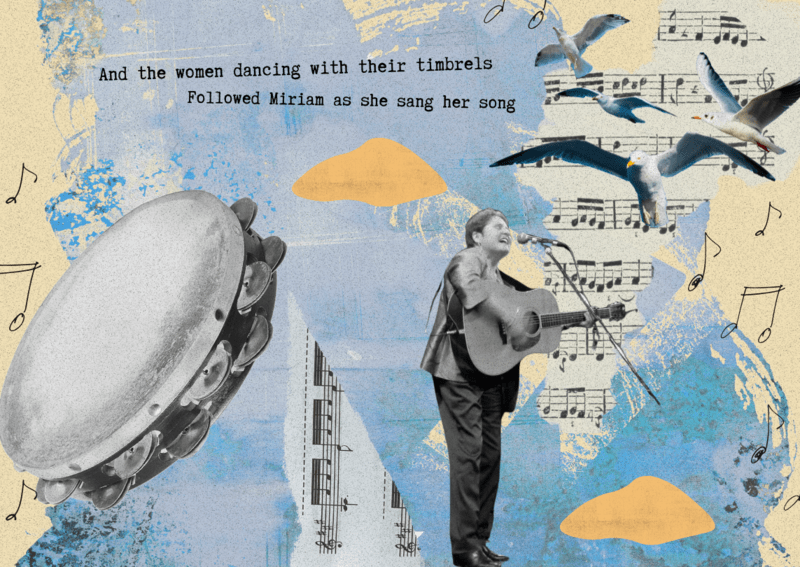Debbie Friedman Taught Me to Use My Voice
Growing up, I hated singing in public. I was a shy kid, and singing felt too vulnerable. But on Sunday mornings at Hebrew school, everyone was led into the sanctuary to sing together, and I sang my heart out to the familiar tunes.
From those first songs that teach us about the different holidays, to learning the prayers for my Bat Mitzvah, to singing with my family when we celebrate holidays together, music has become an integral part of how I experience Judaism. And If you asked me to separate music from Judaism, I couldn’t do it. Music elevates the spiritual experience in a way that words itself cannot.
One of my favorite songs we sang was “Miriam's Song.” Miriam has always been one of my favorite people in the Bible; she’s a strong, badass woman, but is also distinctly feminine. Miriam was an important leader in the Passover story, speaking out for what she believed in and challenging Moses’ authority. For this reason, many Jews place Miriam’s cup alongside Elijah’s during the Passover seder to honor Miriam and women in general, whose contributions are often forgotten.
What I didn’t know when I was singing “Miriam’s Song” in religious school was the remarkable woman behind it: Debbie Friedman.
“A woman touched with spirit, she dances towards the light.”
Debbie Friedman was a singer-songwriter who took traditional Jewish prayers and teachings and set them to original music. She wrote and recorded 22 albums over the course of her lifetime, and, in many communities, her music transformed the experience of the congregation from passive listeners to engaged participants.
By keeping the Hebrew and adding English translations, Friedman helped make Jewish prayer more accessible to non-Hebrew speakers while maintaining the essence of the original text. Her songs became so successful they are now an integral part of the American Jewish prayer liturgy, and to me, an integral part of the joy I so closely associate with Judaism.
“And Miriam raised her voice in song
She sang with praise and might.”
At her concerts, Friedman encouraged the audience to sing along, and many also chose to dance in the aisles. This is a staple at my synagogue as well; there is rarely a service I attend that doesn’t have kids running around and dancing. For those kids, and for me, Friedman’s music created a safe space. To me, that’s what spirituality is all about: a place to be unapologetically yourself.
“And Miriam was a weaver of unique variety.
The tapestry she wove was one which sang our history.”
In addition to creating safe spaces for Jews to freely express spirituality, Friedman inspired and empowered women to speak out. Singing teaches us how to use our voices and discover how powerful they can be. When the entire congregation sings together, we are reminded of how strong we are as a community. The more we learn to use our voices, the more we can fight back when people try to silence them.
Friedman’s music also brings women and our experiences to the forefront. There is a distinct lack of women’s stories in the Torah; even though Miriam is one of the seven major female Prophets, she’s only mentioned a handful of times. But by not only writing about her story but her spirit, Friedman ensures that young girls can grow up celebrating Miriam and seeing themselves reflected in the stories they learn about.
So much of the media we consume is written through the male gaze where women are either feminine and weak or masculine and strong. By celebrating Miriam’s leadership and spirit,, Friedman empowers girls and women to be loud, authentic, and feminine—they don’t need to sacrifice one for the others.
Years—and many religious school assemblies, Shabbat services, and holidays with my family—later, I raise my voice proudly in song. Friedman’s music and stories have given me the confidence to let my voice be heard. I know that now, when I speak up against injustice or advocate for issues that I care about, I will be.
This piece was written as part of JWA’s Rising Voices Fellowship.







